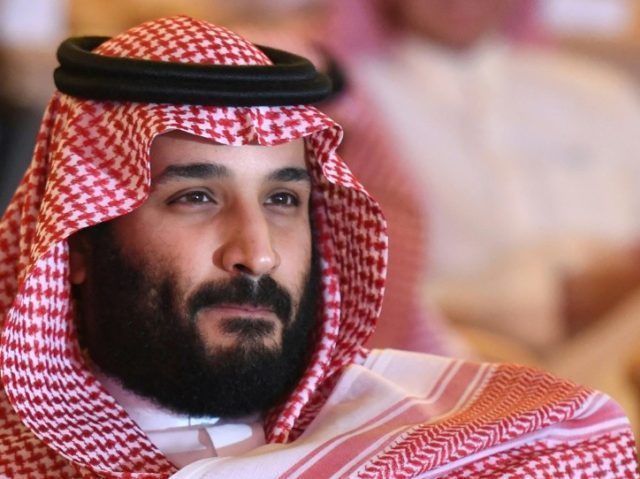Saudi Crown Prince Mohammed bin Salman suggested Tuesday that his nation’s military could join an international coalition against Syrian dictator Bashar al-Assad if the U.S.-led coalition against the regime requests Saudi aid.
Bin Salman made the remarks in a joint press conference in Paris with French President Emmanuel Macron, one of the world’s most vocal critics against the Assad regime. Assad stands accused of a chemical weapons attack against civilians in Douma, a town in rebel-held Eastern Ghouta, a Damascus suburb. American and European leaders have stated they have no confirmation yet on who launched the attack, which occurred during the weekend.
“If required by our alliance with our partners, we will be there,” bin Salman said of a potential military action in Syria, according to the Associated Press. Al Arabiya, a Saudi outlet favorable to the king, interpreted his remarks as a sign that the country “could take part in military action in Syria.” The publication also quotes Foreign Minister Adel al-Jubeir as stating that Saudi Arabia is involved in international conversations regarding how to respond to the Syria attack.
“Our position is that those responsible have to be held accountable and brought to justice,” al-Jubeir told reporters. The foreign minister stated that he refused to “get into speculation about what may or may not take place,” adding, “All I can say is that there are discussions with regards to the options that are available to deal with this matter.”
Bashar al-Assad’s regime heavily relies on support from Iran, Saudi Arabia’s most important regional rival. While on a visit to the United States last month, Mohammed bin Salman said that Iranian Supreme Leader Ayatollah Khamenei “makes Hitler look good” and is trying to “conquer the world” by taking control of weak regimes in its vicinity and forcing leadership there to make decisions that benefit Iran. Iranian officials have boasted of controlling “four Arab capitals”: Damascus, Baghdad, Beirut, and Sana’a, Yemen.
President Trump attacked Russia, Syria’s other major ally, on Twitter Wednesday morning, telling Russian officials to “get ready” for “nice and new and ‘smart!’” American missiles to fall on in the country.
“You shouldn’t be partners with a Gas Killing Animal who kills his people and enjoys it!” Trump advised Russian officials.
Yet Trump has also publicly expressed frustration with the ongoing U.S. presence in Syria and expressed a desire to “get out” of the country. During bin Salman’s visit to the United States, Trump also appeared frustrated with Saudi Arabia’s insistence that American troops remain in Syria to challenge Iran.
“Saudi Arabia is very interested in our decision, and I said, ‘Well, you know, you want us to stay, maybe you’re going to have to pay,'” Trump said.

COMMENTS
Please let us know if you're having issues with commenting.